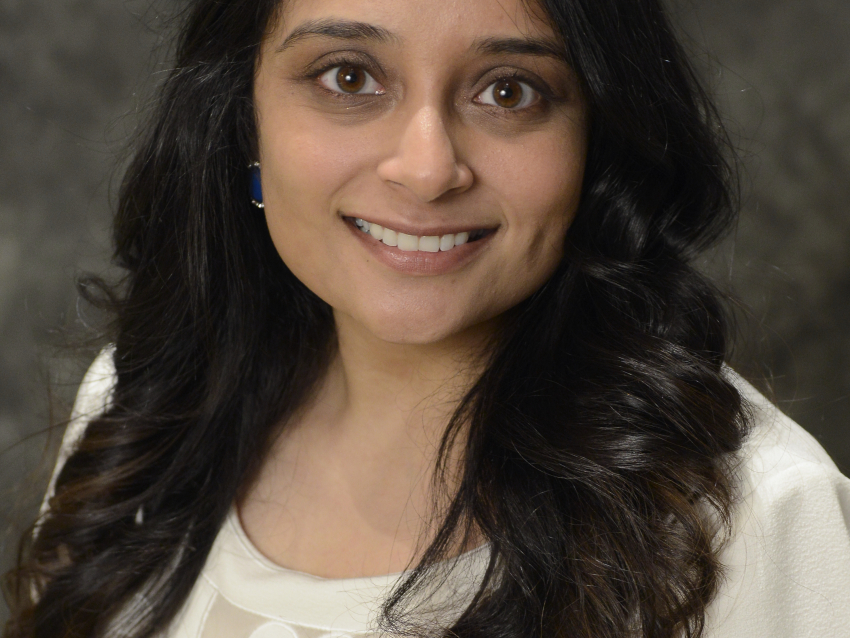
From People Person to Patient Advocate
Urvi Patel, a 2017 graduate of the University of Kentucky College of Pharmacy, has made the most of her pharmaceutical career since leaving the University. The leadership and mentor skills that Patel gained from the UK College of Pharmacy have helped her in all aspects of her career. Coming into the college as an extrovert from the first day, Patel was able to quickly develop meaningful relationships with faculty and peers, as well as hone her skills to easily communicate with patients.
Patel’s experiences at the UK College of Pharmacy continue to impact her relationships with patients and colleagues. “It’s so fun to be able to engage with people on a personal level,” Patel said. “I can teach the clinical stuff—the difficult part is being a good human. Those are the skills I got to better develop in pharmacy school.”
Before pharmacy school and on the weekends, Patel worked as a technician at a community pharmacy in Clarksville, TN. But after pharmacy school is when Patel finally understood how the UK College of Pharmacy prepared her. After graduation, Patel left Kentucky for residency in Atlanta at Emory University Hospital. Her first year consisted of general pharmacy practice, followed by a specialized second year, focusing on hematology and oncology.
“The first year was amazing for me,” Patel said. “Before going to Emory, I wasn’t really residency bound. I got my Master of Public Health (MPH) along with my PharmD and planned to look for administrative jobs. However, after a fourth-year rotation at the Centers for Disease Control during pharmacy school, I changed my mind. The jump to Emory’s residency program became the foundation for who I wanted to be as a pharmacist."
During her first year of residency, Patel learned the ins and outs of health-system pharmacy and had full exposure to the operational components of the hospital’s pharmacy residency program. She gained a better understanding of the role of a clinical pharmacist and how to best provide patient care. Her time as a resident consisted of clinical rotations, taking care of patients, writing research papers, learning how to be a clinician, and understanding how to interpret data. It was an immersive experience, and exactly what Patel needed to confirm she would stay on another year.
Patel stayed at Emory University Hospital to focus her training on hematology and oncology. She focused on specific disease states of cancer and expanded her operational knowledge of hospital administration, continuing to put her MPH degree to use.
"The hospital’s subspecialty model really helped me learn everything I needed to know about each specific disease state and allowed me to learn the type of clinical oncology pharmacy I wanted to practice," said Patel. During her second year at Emory, she also served as the program’s chief resident. Overall, the two-year residency experience helped shape the pharmacist Patel is today.
After moving to Houston, TX, Patel was hired as a Clinical Pharmacy Specialist at MD Anderson Cancer Center in the Department of Gynecology and Oncology. She worked with specific physicians to collectively manage patient's chemotherapy care and educate the patients on their treatment.
“There was a lot of power and a lot of responsibility, so I often stopped to spend time thinking and researching different options,” Patel said. “I work with pain management, nausea, and hypertension as well with our patients.”
From choosing and talking through different treatment options with providers, to collaborating with the patient care team, not many decisions were made without Patel’s input.
One piece of advice Patel would give to future pharmacists is to recognize that people around you may see you as a leader but that doesn’t mean you have to take on leadership roles. Serving your community and your patients in a way that makes you proud makes you a leader.
“Your existence is as a leader,” Patel said. “You can be a leader in whatever role you decide to take.”
